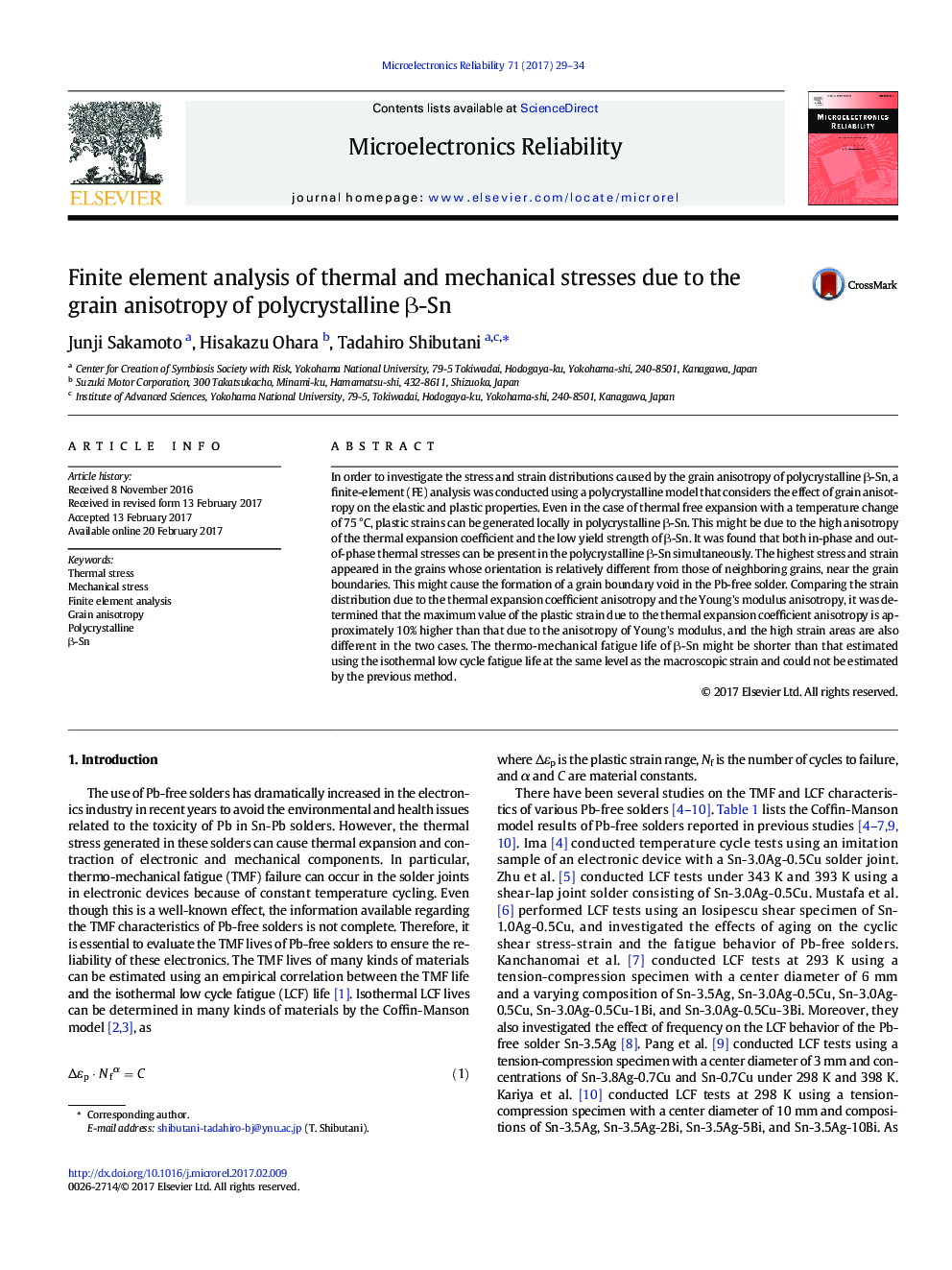| Article ID | Journal | Published Year | Pages | File Type |
|---|---|---|---|---|
| 4971459 | Microelectronics Reliability | 2017 | 6 Pages |
Abstract
In order to investigate the stress and strain distributions caused by the grain anisotropy of polycrystalline β-Sn, a finite-element (FE) analysis was conducted using a polycrystalline model that considers the effect of grain anisotropy on the elastic and plastic properties. Even in the case of thermal free expansion with a temperature change of 75 °C, plastic strains can be generated locally in polycrystalline β-Sn. This might be due to the high anisotropy of the thermal expansion coefficient and the low yield strength of β-Sn. It was found that both in-phase and out-of-phase thermal stresses can be present in the polycrystalline β-Sn simultaneously. The highest stress and strain appeared in the grains whose orientation is relatively different from those of neighboring grains, near the grain boundaries. This might cause the formation of a grain boundary void in the Pb-free solder. Comparing the strain distribution due to the thermal expansion coefficient anisotropy and the Young's modulus anisotropy, it was determined that the maximum value of the plastic strain due to the thermal expansion coefficient anisotropy is approximately 10% higher than that due to the anisotropy of Young's modulus, and the high strain areas are also different in the two cases. The thermo-mechanical fatigue life of β-Sn might be shorter than that estimated using the isothermal low cycle fatigue life at the same level as the macroscopic strain and could not be estimated by the previous method.
Related Topics
Physical Sciences and Engineering
Computer Science
Hardware and Architecture
Authors
Junji Sakamoto, Hisakazu Ohara, Tadahiro Shibutani,
